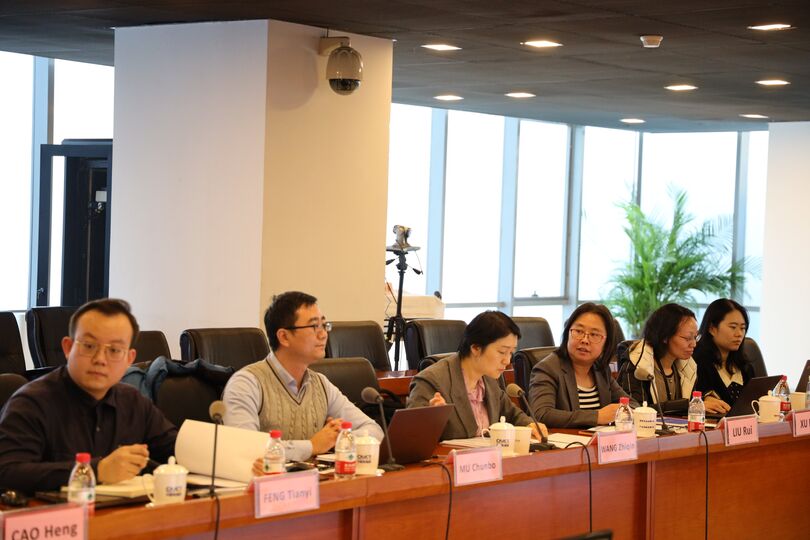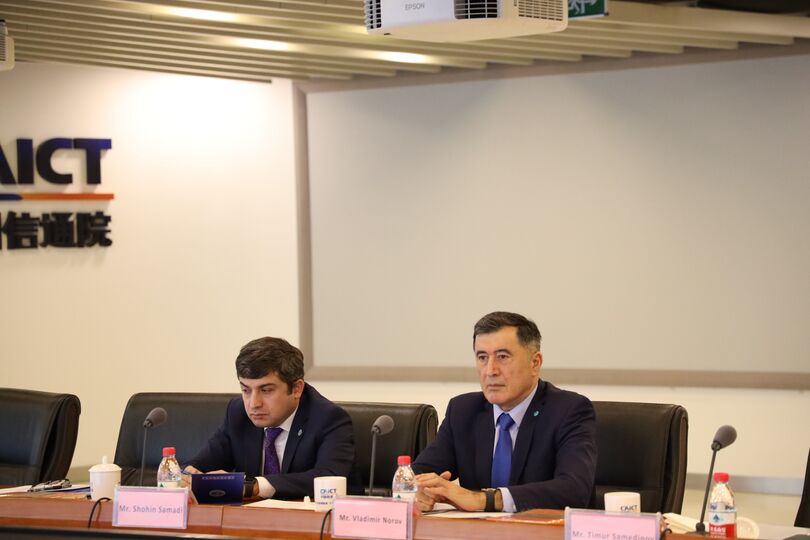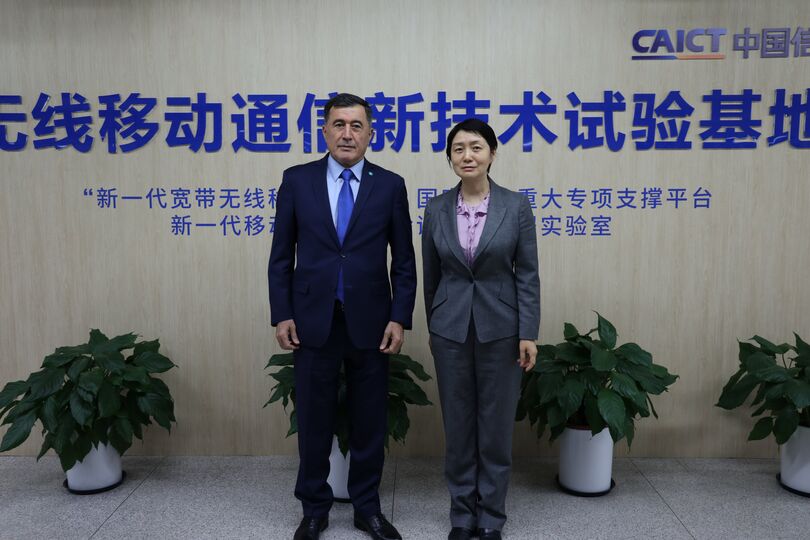On 11 December 2020, SCO Secretary-General Vladimir Norov visited the China Academy of Information and Communications Technology (CAICT or the academy).
During his visit, Mr Norov was told about the scientific and laboratory activities of the academy, the history of cellular communications in China and developments by CAICT employees in this area.
It was noted that the new generation cellular networks have 10 year-old changes that increase by more than ten times with every generation.
"All generations have many standards that must be adjusted, but only 5G has become uniform. By late 2020, China will invest $10 billion in this network," said CAICT scientific associate Su Fei. Today, over 160 million people are Chinese 5G users. "Thanks to domestic scientists, the Chinese Huawei Corporation leads the world in providing cellular communications services," she said.

Su Fei also noted that 5G development has had a positive influence on many industries, including transport. "After 5G was introduced into the management system at the Port of Shenzhen, goods turnover (shipping and receiving volumes) increased by 15-20 times while the number of employees went down by 80 percent," she said, adding that 5G is now being introduced into the healthcare industry.
At the meeting with CAICT Vice President Wang Zhigin, the participants discussed cooperation with the SCO Secretariat and holding joint events.
The SCO Secretary-General informed the CAICT Vice President about the SCO's history, development and activities. He noted that with mutually beneficial cooperation, the SCO countries are giving priority to the industries that are closely connected with cloud computing, artificial intelligence, e-commerce, the digital economy and the region's general development.
"Having not fully recovered from the 2008 recession and living under the pandemic, the world is facing new economic and financial problems. Considering the sizable digital gap between the SCO countries, the 2019 Bishkek summit adopted a concept for SCO cooperation in digitisation and ICT. This year we also approved a number of documents on cooperation between the SCO countries in the digital economy," said Mr Norov.

He noted that the SCO Heads of State emphasised in their Moscow Declaration that cutting-edge ICT creates new advantages and opportunities for the development of all humanity. "The leaders of our states oppose any discrimination under any pretext, which prevents the development of the digital economy and communications technology. They consider it necessary to draft universal rules under UN aegis, principles and standards of responsible conduct for states in the information space with a view to facilitating the development of the digital economy and communications technology and preventing the use of this technology for purposes that are incompatible with maintaining international peace, security and stability. Our member states reaffirm their intention to work actively in this sphere and coordinate their efforts at international venues, in part, for ensuring information security in the SCO space," Mr Norov said.
He told the CAICT vice president about the documents related to the digital economy, ICT and information security that were adopted at the recent session of the SCO Heads of State Council.
"This year the SCO Heads of State Council adopted a statement on cooperation in the digital economy. It specified the main areas for development and expressed the interests of the SCO countries in developing and expanding cooperation in this sphere," emphasised Mr Norov.
Two presentations "Battling COVID-19 with ICT" and "The Digital Economy in China" were presented to the SCO Secretary-General.
It was noted that due to CAICT-suggested changes, Chinese society had reduced the negative impact of the pandemic on healthcare and the economy. "Our software determined the need for medical equipment, medications and medical personnel in various regions of China. These programmes were also introduced into logistics and allowed us to direct and redirect the required amount of medications and equipment," it was noted in one presentation.
After the presentations, Wang Zhiqin informed the distinguished guest about the history of the academy, its activities, as well as research and practical studies by its associates.
"All new ICT discoveries in the People's Republic of China belong to our academy, both hardware and software. We also bear responsibility for them on the international level," she emphasised.
"All new ICT discoveries in the People's Republic of China belong to our academy, both hardware and software. We also bear responsibility for them on the international level," she emphasised.
Wang Zhiqin supported the SCO Secretary-General's proposal to hold an online conference and a webinar in early 2021.
The China Academy of Information and Communications Technology (CAICT or the academy) was founded in 1957 and is a research institution operating under the direct guidance of the Ministry of Industry and Information Technology.
The academy has always positioned itself as a national advanced professional platform for the development of innovations and analytical centres based on the concept of the main cultural values of rectitude, practical relevance, education and prosperity, as well as the main strategies, plans, policies, standards and testing certificates for the industry. It has played a major role in promoting breakthroughs in the Chinese communications industry as well as innovations and ITC development.
Adapting itself to the new situation and the requirements of socioeconomic development and paying special attention to the new national strategy based on "the network potential" and "industrial power" in the past few years, the academy has concentrated on research and innovation. Strengthening the advantages of the telecommunications industry and research on the internet, the academy has continued expanding its spheres of research.
It has conducted advanced research in 4G/5G, the industrial internet, intellectual production, mobile internet, the internet of things, the internet of transport vehicles, the internet of the future, cloud computing, big data, artificial intelligence, virtual/augmented reality (VR/AR), intelligent equipment, and network and information security. These advanced studies and plans for the future have played an important role in national information communications and the integration of information technology, strategic and political studies, technical innovation, industrial development, and ensuring security. These areas receive powerful support. The academy has carried out the main strategies and concepts, such as the internet+, powerful production, and broadband access in China, and performed a number of other important tasks in various areas.
